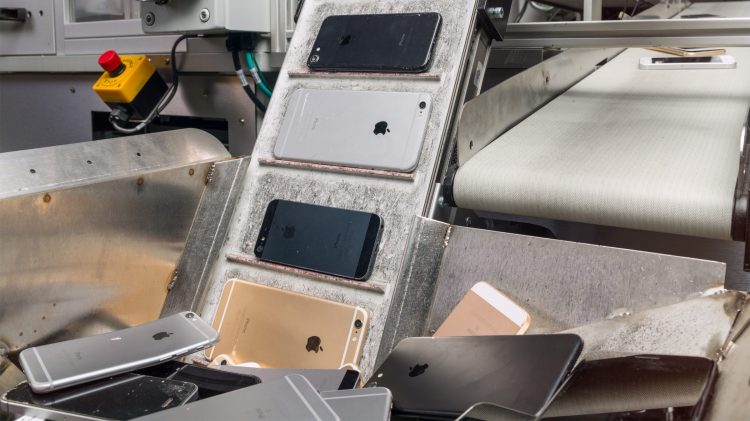After Apple admitted to surreptitiously slowing down iPhones based on the performance of their aging batteries, it apologized by offering customers a discounted battery replacement program throughout 2018 — $29 per device, down from $79. Despite partially blaming this program for an unexpected holiday revenue shortfall, Apple didn’t publicly quantify just how many users had taken advantage of the program, but a new report offers a concrete number: 11 million.
According to Daring Fireball, citing Apple CEO Tim Cook at a January 3 hands-on meeting of Apple employees, the 11 million figure is nearly 10 times the standard rate of battery replacements; 1 million to 2 million replacements would normally have been expected. Since calculations provided by former Apple executive Jean-Louis Gassée suggest that each replacement could have cost Apple $1,000 in new iPhone revenues, that works out to an $11 billion shortfall for the year.
Though that’s a high estimate, given that average iPhone selling prices were $793 in the last quarter and that not every battery repair stopped an iPhone replacement, the takeaway is clear: More customers took advantage of the discount than expected, and the program did somewhat impact new device sales. As the logic goes, since iOS slows iPhones as their batteries age, iPhones with new batteries seem less in need of imminent replacement than iPhones with old batteries.
Apple revised its holiday sales projections downward to $84 billion, having previously offered a guidance range of $89 billion to $93 billion for the quarter. The company normally hits or exceeds the upper end of its guidance, suggesting that the shortfall was nearly $10 billion short of projections.
June 5th: The AI Audit in NYC
Join us next week in NYC to engage with top executive leaders, delving into strategies for auditing AI models to ensure fairness, optimal performance, and ethical compliance across diverse organizations. Secure your attendance for this exclusive invite-only event.
The battery replacement program clearly wasn’t the only or even the primary factor in that revision, however. Apple specifically spotlighted “economic deceleration, particularly in Greater China,” as a major contributing factor, and only modestly implicated iPhone battery replacements. Additionally, the battery replacement program began at the very end of 2017, and its impact on the holiday quarter would not have been as great.
Prior to the leak of Cook’s 11 million replacement number, analysts could only guess at the number of iPhone batteries that were fixed under the discounted program. Gassée’s original guess was 50,000 replacements, with a suggestion that 500,000 would be enough to have a $500 million impact on iPhone revenues. Given that well over 1 billion iPhones have been sold, 11 million is a small number to have been fixed, but still enough to contribute to a downtick in sales.

